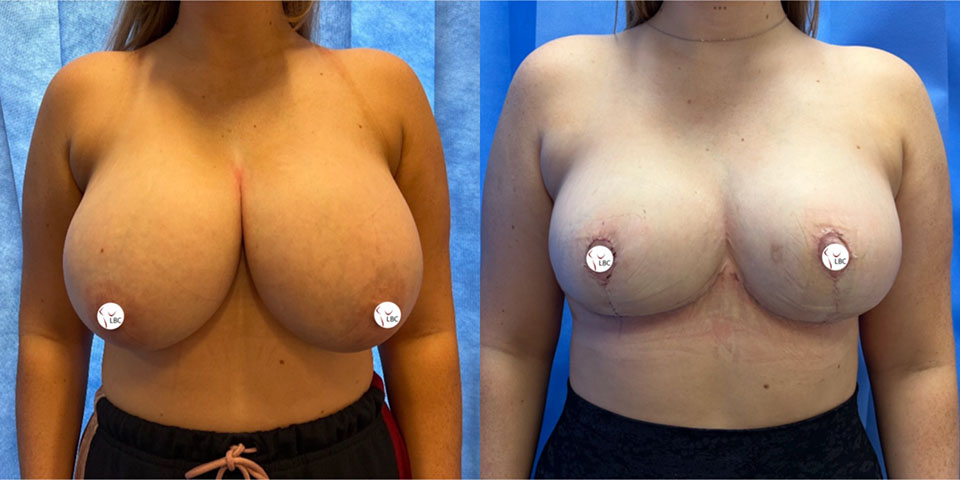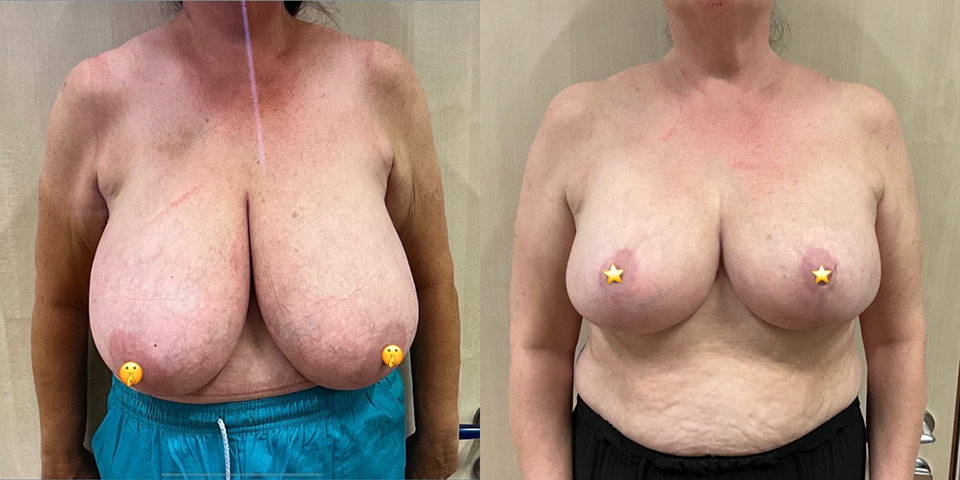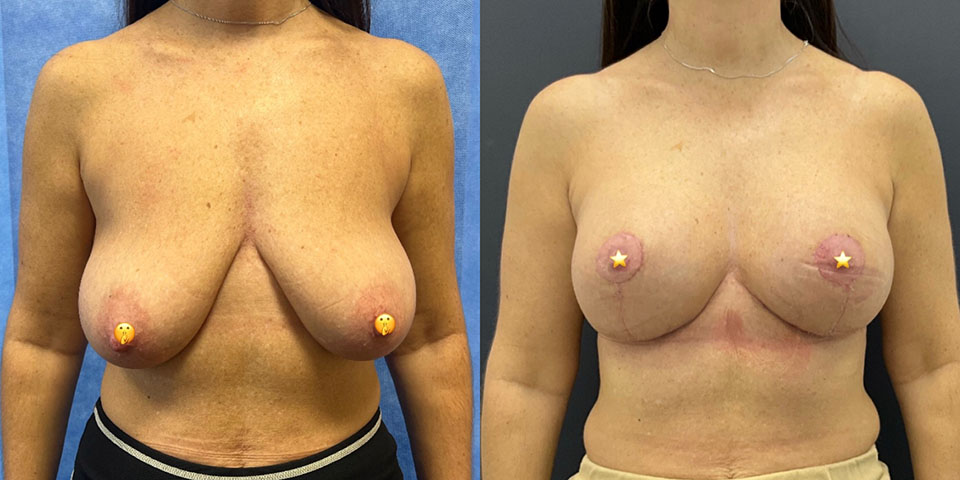Some women have large to very large breasts. The size of the boobs is genetically determined to a great extent, but increased body weight aggravates the problem.
Women with very large breasts experience a host of problems such as backache, neck pain, grooving of shoulders from bra straps and rashes under the breasts. It may also be difficult to fit into fashionable clothes and limit certain leisure pursuits and sport activity.
Such women frequently report poor self-confidence and suffer from low esteem.
Reduction mammoplasty is a surgical procedure to reduce the size of the breasts. The technique involves removal of breast glandular tissue, fat and skin from breasts. The areola (pigmented skin around the nipple) is also reduced in size to keep it in proportion with the reduced breast. The outcome of the breast reduction surgery is influenced to a large extent by the amount of breast tissue removed, condition of the breast skin, co-existing medical conditions such as diabetes, and whether the patient is a smoker or not.
Women in particular who have very large breasts wish to have a drastic reduction in the size of their boobs which is not advisable. Reason for this is that radical reduction in breast size could result in disparity of breast size to the body frame. It is important to match the size of the breast in proportion to the body frame to have aesthetically pleasing front organs. It is difficult to guarantee a breast size after the operation as the bra size could vary amongst different manufacturers.
Breast Reduction is done under a general anesthesia and involves a 2 to 3 day hospital stay. Drains will be inserted into the reduced breasts and will be removed in 24 to forty eight hours. The ensuing scar is anchor shaped following the contour of the breast and encircles the areola.
A loss or gain in body weight, or pregnancy can offset the benefits of breast reduction surgery, however, breast reduction in itself has no specific risks to pregnancy. A proportion of women may have difficulty in breast-feeding.
 Breast reduction
Breast reduction
 Breast reduction
Breast reduction
 Breast reduction and augmentation with implants
Breast reduction and augmentation with implants

Pain Control: Generally after breast reduction you will have mild to moderate pain and this usually responds well to Paracetamol or Cocdomal. Please avoid taking aspirin or voltarol as this may cause bleeding/haematoma formation. You will be given a supply of pain relief medications on discharge.
Antibiotics: Following breast reduction you do not need antibiotics, but will be considered if there is a risk of wound infection.
Wound dressings: The surgical wounds will be covered with protective dressings and should be left undisturbed if they remain clean until you’re seen in the clinic. However if the dressing becomes soiled with discharge you will need to report to the hospital nurse or your GP’s practice as soon a possible, for a wound check and change of dressings.
Support Bra: You will need to wear a good fitting support bra day and night for 6 weeks to maximise the benefits of the operation.
Rest and Relaxation: It will be helpful to have someone with you for the first few days after returning home. Rest and relax until you attend the clinic, which is usually between 7 to 10 days.
Driving and work: Do not drive or operate machinery for 2 weeks.
Exercise: Resume gentle exercise after 2 weeks and avoid strenuous exercise for at least 6 weeks. Avoid stretching of upper torso and arms for a minimum of 3 weeks to prevent wound problems.
And finally you will need to wait for 3 to 6 months post breast surgery before you can appreciate the new shape of your breasts. Most of the swelling and bruise will resolve in 3 to 4 weeks, but the remolding of the breasts will continue for a few more months. You will need to be aware that the shape and size of the boobs will vary with fluctuations in your body weight, future pregnancy and with time. Maintaining a steady weight, abstaining from smoking and regular use of well fitting support bra helps delay the process of sagging.
Yes you will be given antibiotics at the commencement of the operation and may be continued for few days after the procedures. It is very important that you inform your specialist if you have any particular allergies to antibiotics.
You will be given adequate pain killers and should not experience bad pain. Mild discomfort is to be expected particularly when you stretch your arms and work the muscles around the implant but this will soon settle. If it continues more than a couple of weeks you should consult your specialist.
Yes the surgical wounds will be covered with an occlusive dressing and this should be kept clean and dry until the consultant or the nurse checks the wound in the clinic which is usually between 7 to 10 days time. You should report if there is any spotting on the dressing or discharge from the wound.
Yes you will be recommended a special support bra to allow the implant to settle in the right place, and you are encouraged to wear them for 6weeks after the procedure.
This depends on the nature of you work. If the work you do is not physically demanding generally a week to 10 days should be sufficient to recover, however if your work requires strenuous effort then it is best to take at least 4 weeks off from work.
Yes, your specialist will check the wound at your first post –op visit to the clinic and will confirm that it should be ok for you drive. Generally it is advisable until the wound has healed which should take about 2weeks.
It is best to avoid strenuous exercise until the first few weeks after the procedure, however you can do gentle walking while you are recovering.